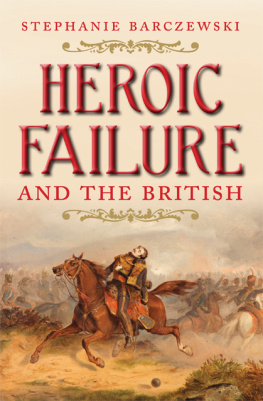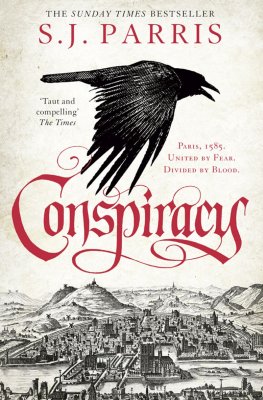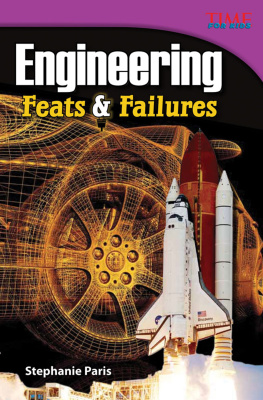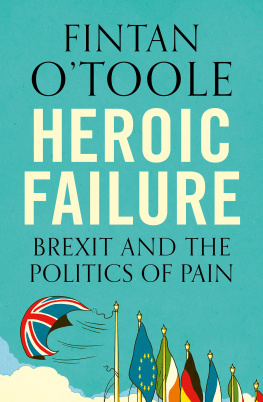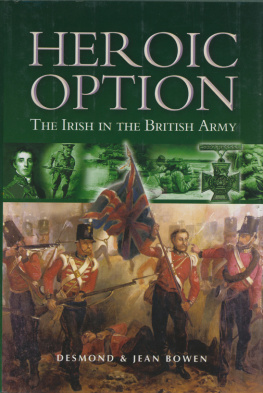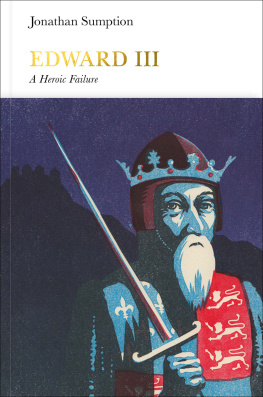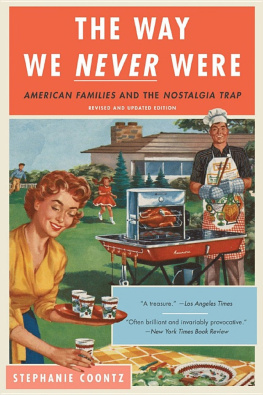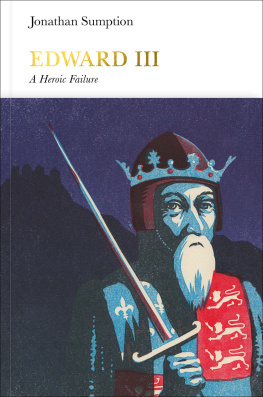Stephanie Barczewski - Heroic Failure and the British
Here you can read online Stephanie Barczewski - Heroic Failure and the British full text of the book (entire story) in english for free. Download pdf and epub, get meaning, cover and reviews about this ebook. year: 2016, genre: History. Description of the work, (preface) as well as reviews are available. Best literature library LitArk.com created for fans of good reading and offers a wide selection of genres:
Romance novel
Science fiction
Adventure
Detective
Science
History
Home and family
Prose
Art
Politics
Computer
Non-fiction
Religion
Business
Children
Humor
Choose a favorite category and find really read worthwhile books. Enjoy immersion in the world of imagination, feel the emotions of the characters or learn something new for yourself, make an fascinating discovery.
- Book:Heroic Failure and the British
- Author:
- Genre:
- Year:2016
- Rating:5 / 5
- Favourites:Add to favourites
- Your mark:
- 100
- 1
- 2
- 3
- 4
- 5
Heroic Failure and the British: summary, description and annotation
We offer to read an annotation, description, summary or preface (depends on what the author of the book "Heroic Failure and the British" wrote himself). If you haven't found the necessary information about the book — write in the comments, we will try to find it.
Heroic Failure and the British — read online for free the complete book (whole text) full work
Below is the text of the book, divided by pages. System saving the place of the last page read, allows you to conveniently read the book "Heroic Failure and the British" online for free, without having to search again every time where you left off. Put a bookmark, and you can go to the page where you finished reading at any time.
Font size:
Interval:
Bookmark:


Copyright 2016 Yale University
All rights reserved. This book may not be reproduced in whole or in part, in any form (beyond that copying permitted by Sections 107 and 108 of the U.S. Copyright Law and except by reviewers for the public press) without written permission from the publishers.
For information about this and other Yale University Press publications, please contact:
U.S. Office:
Europe Office:
Typeset in Adobe Caslon Pro by IDSUK (DataConnection) Ltd
Printed in Great Britain by TJ International Ltd, Padstow, Cornwall
Library of Congress Cataloging-in-Publication Data
Barczewski, Stephanie L., author.
Heroic failure : the British / Stephanie Barczewski.
New Haven : Yale University Press, 2016.
2015023660 | ISBN 9780300180060 (cl : alk. paper)
National characteristics, British. | Failure (Psychology)Great BritainHistory. | HeroesGreat BritainHistory. | Great BritainCivilization.
LCC DA118 .B29 2016 | DDC 941dc23
LC record available at http://lccn.loc.gov/2015023660
A catalogue record for this book is available from the British Library.
10 9 8 7 6 5 4 3 2 1
CONTENTS
PREFACE AND ACKNOWLEDGEMENTS
T HIS BOOK ORIGINATED from a conversation with Heather MacCallum of Yale University Press at the Anglo-American Conference in London in the summer of 2010. I was meeting with her to discuss the publication of my then current project, on country houses and their relationship to the British Empire. That project did not fit Yales roster of titles (it soon found a home at Manchester University Press), but in the course of our conversation I mentioned a long-standing but as yet ill-defined idea I had to explore the reasons for the prevalence of heroic failure in British culture. I first encountered heroic failure while writing about Captain Scotts death in the Antarctic in 1912 and had been struck by two things: first, many British people assumed that heroic failure was something they celebrated more than other cultures; and second, their opinions as to whether this was something positive or negative were divided. Some Britons felt that their nations best qualities emerged in its moments of greatest duress, and that the celebration of heroic failure reflected an admirable embrace of perseverance, resilience and stoicism, transcending a mere thirst for victory and success. Others, however, thought that the British had come too readily to tolerate defeat, and that the elevation of so many failures to heroic status was a sign of cultural malaise and a contributory factor in Britains decline as a great power in the twentieth century.
Five years ago, I did not know which, or if either, of these views was correct. But, with the support of Yale University Press, I was sufficiently intrigued to explore them further. This was my third book project on Victorian and Edwardian heroes, and I already knew enough about the subject to suspect that the celebration of heroic failure had deep roots in British culture, roots that stretched back further than the postwar era of economic decline and the loss of the empire. I believed that the idea of heroic failure had emerged in the nineteenth century, when the British Empire was at its peak, not during its post-1945 decline. I thus wanted to understand why failure had been celebrated so enthusiastically by a nation that was enjoying so much success in expanding its territorial and economic reach to all corners of the globe.
The answer to that puzzle, as this book sets out, lay in Britons desire to see their empire as just, benevolent and moral. The nineteenth century abounded with moments in which the sheer might of British power made this difficult. The Royal Navy was virtually unchallenged as the most formidable fighting force in the world for most of the century, and the head start the nation enjoyed in industrialization created economic advantages that did not begin to dissipate until the 1870s. The latter factor not only played a role in expanding Britains informal sway over distant markets, but brought advances in military technology that made the conquest of territory in Asia, Africa and elsewhere rapid and bloody for those who attempted to resist. An empire based on military conquest of, and political authority over, hundreds of millions of non-white peoples was not, however, the one that most Britons imagined or wanted. Though India has received by far the most scholarly attention among Britains nineteenth-century colonies, and though the scramble for Africa remains the thing that most people associate with the late Victorian age of high imperialism, it was the colonies of white settlement (Canada, Australia, New Zealand and, to a certain extent but in a more complicated fashion, South Africa) that embodied the ideal form of empire for most people, political leaders and ordinary Britons alike. This was because Britons imagined an empire not of conquest of, and authority over, alien, subjugated peoples, but an empire of little Britains through which British people, culture and political ideals would be spread over the world.
But this was not the empire that they actually had. After the American Revolution, the populations of Britains colonies were overwhelmingly non-white. Nor did the indigenous peoples welcome the British with open arms, making it difficult to pretend that the gifts of civilization, Christianity and economic modernization were being bestowed on grateful and happy recipients. In this context, it was helpful to create stories of imperialism that de-emphasized might and promoted the notion that the British were sacrificing themselves for the good of their colonial possessions. Here, then, is what engendered the embrace of heroic failure.
The latter emerged from two specific contexts: exploration and military action. The exploration of dangerous places such as the interior of Africa, the Arctic and the Antarctic allowed the British to see themselves as selfless pursuers of scientific and geographical knowledge. Images of lone, isolated explorers facing hostile indigenous peoples and harsh natural environments helped to counterbalance notions of the British as all-powerful. When these heroes failed, and died, their self-sacrifice could be highlighted. Images of brave soldiers standing against overwhelming numbers of indigenous foes performed much the same function. British losses in battles such as Aliwal, Chillianwallah, Isandlwana and Maiwand helped to offset the massive technological advantages that Britain enjoyed on the battlefield. They served to occlude Britains military might and to shift attention away from extremely lopsided battles that were more akin to slaughters. I will thus argue in this book that heroic failure emerged as a means to help the British feel good about the uglier aspects of imperialism in the nineteenth century. To be sure, it then evolved into a coping mechanism for imperial decline in the twentieth, but this is not why it originally became so prominent.
As is the case with every book, I have accumulated numerous debts in writing this one. Much of the research support has come from the Department of History, the College of Art, Architecture and Humanities and the National Scholars Program at Clemson University. My Clemson colleagues continue to serve as bastions of professional and personal support; special thanks go to Elizabeth Carney, Steve Marks, Michael Meng, Rachel Moore, Megan Shockley, Christa Smith and, particularly, James Burns, who read my sections on South Africa and helped me sufficiently to nuance its complex history as a British colony. The research was carried out at over a dozen archives in the United Kingdom and United States; all were extremely helpful and delightful places in which to work. I would like to thank in particular Anne Martin of the David Livingstone Centre; Edward Smith of the National Army Museum; Juline Baird of the Scottish Borders Archive; Roberta Goldwater of the Tyne and Wear Archive; and Naomi Bonham of the Scott Polar Research Institute at the University of Cambridge. In a broader sense, I would like to thank Sir David Cannadine, Linda Colley, Dane Kennedy and John MacKenzie for their continuing professional support and inspiration; an hour of conversation with any of those distinguished scholars is invaluable. I first put the argument that is the primary focus of this book on public display at the British Scholar Conference in Newcastle in June 2014, and so I thank the organizers and the audience for giving me the opportunity to do so and for offering so much useful feedback. I would also like to thank Ed, Claire and William Moisson for making my research trips to London so much more enjoyable. This book would never have existed without Heather McCallum and Yale University Press. And finally, my husband and colleague, Michael Silvestri, has once again patiently edited the manuscript and even more patiently helped me to answer numerous questions and solve numerous problems in seeing it through to completion. He knows better than anyone that living with a fellow British historian means that you live with their work as well.
Next pageFont size:
Interval:
Bookmark:
Similar books «Heroic Failure and the British»
Look at similar books to Heroic Failure and the British. We have selected literature similar in name and meaning in the hope of providing readers with more options to find new, interesting, not yet read works.
Discussion, reviews of the book Heroic Failure and the British and just readers' own opinions. Leave your comments, write what you think about the work, its meaning or the main characters. Specify what exactly you liked and what you didn't like, and why you think so.

